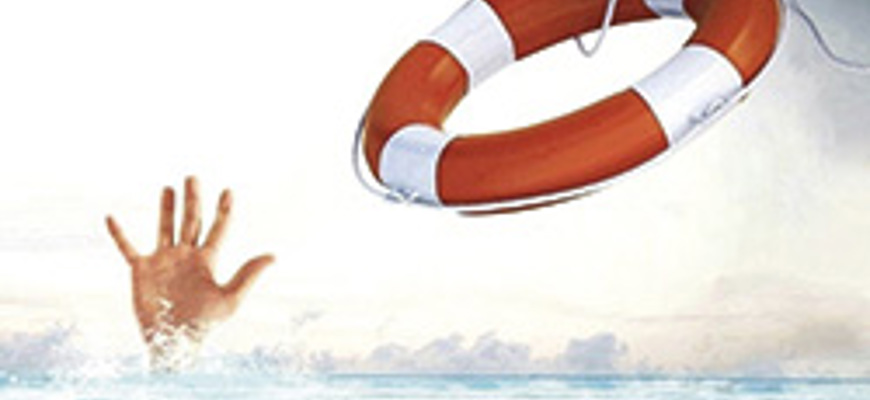Too late, too late?

Money advice services in Scotland are in bad shape, arguably the worst they have been in since 2003. Unlike the years that followed 2008, however, when the sector rose to the challenge of the credit crunch, it is now questionable whether it could cope with another financial crisis.
With years of funding cuts and legislative reform, provision for free money advice services in Scotland is now fragmented, and in some areas, of little consequence to many of those they are supposed to help.
This was illustrated recently by the BBC documentary, Country Council, which spotlighted the challenges faced by Scottish local authorities in delivering services. In Argyll & Bute, a vast area that covers Helensburgh, Dunoon, Lochgilphead and Oban, the local money adviser, Des Middleton, was featured as one of only two employed to cover that huge swathe of the country. Across Scotland, however, it is not just councils that are facing cuts: some citizens’ advice bureaux are also looking at up to 100% of their core funding being axed in 2018-19.
Supply and demand
This dire situation comes just two and half years after the introduction of the Bankruptcy and Debt Advice (Scotland) Act 2014 (BADAS Act), which placed significant demands on money advisers and the work they undertake for their clients in assisting them to access formal debt solutions. These demands have seen the number of debtors accessing the Debt Arrangement Scheme fall by 46%, the number accessing sequestration drop by 23% and the number granting trust deeds decline by a third. Meanwhile, across the border, by contrast, individual voluntary arrangements are at their highest level in three decades.
UK consumer debt also continues to rise and is now again at pre-credit crunch levels, topping £200 billion for the UK. With inflation at 3% and interest rates rising, all the evidence points to a sector that will face increased demand in the coming years.
Much of this has been confirmed by a recent review, carried out by the Money Advice Outcomes Project, funded by the Money Advice Service and Improvement Service, which found that local authorities need to implement wide-ranging, transformative changes to maintain money advice services going forward and mitigate the effect of cuts.
National agency?
What form these transformative changes will take is up for debate, but there are some obvious mistakes that can be avoided. An overreliance on remote telephone and internet services would be an error, although they have their place. There will always be a class of clients who require face-to-face interventions and whom such remote services cannot satisfy. Evidence of this can be found in the recent admission by Stepchange, the national debt charity, that it lacks the capacity to provide face-to-face interviews for clients who are struggling to complete financial education modules introduced by the BADAS Act.
Transformation, however, could be aided by the creation of a new executive agency, that could act nationally as Scotland’s Money Advice Service. Such a body could be the recipient of the financial levy for debt advice which is collected by the Financial Conduct Authority from lenders and will be devolved in 2019-20. It could also ensure funding is invested and distributed in a way that not only increases the provision of local services, but could undertake strategic investment in new technology, such as open banking, which could revolutionise the way money advice services are delivered by providing a valuable tool to advisers. Such an agency could also prescribe a single set of national standards for advice agencies in Scotland, cutting back on duplication.
Equitable fees
Another obvious improvement could be reforming the current fee structures for formal debt solutions in Scotland. At present the Debt Arrangement Scheme only recovers half the £1.2 million it costs to deliver the service, but in 2016-17 distributed £37 million to creditors. A minimal increase in fees could easily recover the rest.
However, a more radical, transformative change could be achieved with the introduction of a statutory fair-share scheme, based on the voluntary one currently operated by clearing banks, for organisations like Stepchange. This allows organisations to retain a percentage of the funds collected to fund their services. On a statutory basis, such a scheme could allow private sector fees to be abolished and the Debt Arrangement Scheme to be provided free to clients, by the public, voluntary and, importantly, also the private sector, increasing capacity, but with no increased risk of consumer harm.
Fees for formal debt solutions on a wider basis should also be reviewed. In March 2017, the Scottish Government withdrew draft bankruptcy fee regulations, after evidence was provided by Govan Law Centre and me that showed they would, among other things, result in fee increases of up to 188% for debtors who had their homes sold. No replacement fees have since been forthcoming, although the Accountant in Bankruptcy remains committed to the principle of full cost recovery. It would appear, however, that that principle only operates when the fees are being charged to those least able to afford them – the consumers. Yet statutory debt relief and debt management remedies returned £80 million to creditors in 2016-17.
A fee of less than 1% on those funds could easily remove any bankruptcy application fees for debtors, and ensure access to justice is based on need and not ability to pay. A lesser amount could easily fund services like Govan Law Centre’s pilot Personal Insolvency Law Unit which operated between July 2016 and March 2017 and provided independent advice to those in formal debt solutions: a need the unit showed to exist, but which remains unsatisfied.
Past experience
The last time the free money advice sector in Scotland experienced the type of transformative change it currently needs was in 2003. It followed the introduction of the Debt Arrangement and Attachment (Scotland) Act 2002. Ringfenced funding of £3 million per year was provided until 2005 and was then increased to £5 million per year until 2007. Fortuitously, when the credit crunch hit and the Bankruptcy and Diligence etc (Scotland) Act 2007 was introduced, Scotland’s money advice services were able to cope.
As someone who has worked in the sector for more than 16 years, I witnessed that transformative change and how, with the rising tide of debt, all boats were lifted. However, with the current budget cuts, the consequences of the BADAS Act still looming over us and personal debt at record levels, the waterlines for Scotland’s money advice services are still submerged. If the opportunity to introduce meaningful change does come, I fear it will already be too late, too late.
In this issue
- GDPR: do you need a data protection officer?
- Prospectus to buy into
- From Milngavie to the Middle East
- Devolution after the Brexit hurly burly
- Reading for pleasure
- Opinion: Janys M Scott
- Book reviews
- Profile
- President's column
- Forward from a landmark year
- People on the move
- Equality: is it practised?
- Alcohol pricing: a measured response?
- Private tenancies: rebalancing or just upheaval?
- Spending means savings: legal aid study
- Too late, too late?
- RebLaw Scotland – join the rebellion
- Sentences: having the last word
- Insolvency and jurisdiction update: stating the obvious?
- When threats are OK
- Enter yet another tenancy
- Rights of the funded
- Registration rejections – more than formalities
- Heritage holder
- Public policy highlights
- Society's first MOOC opens legal learning to all
- Where there's a will...
- Resolution for the new year
- Q & A corner
- A year to accredit
- Dilapidations: the pitfalls
- Scaling the depths
- Equality: a matter of choice?






